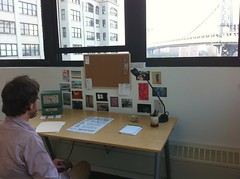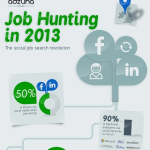
Start up Magazine spoke to Instant Impact, the intern recruitment agency that unites fast growing SMEs with the very best students and graduates, about how to conduct the perfect job interview and getting the best out of candidates. The Startup Magazine has recently covered how to find great candidates for a job, by social media recruiting and how to use free web sources to find candidates for free. Moving forward we wanted to share some advice on conducting a job interview for the candidates you find.
At first impression, interviews seem like a relatively easy thing to conduct. Meet a candidate, shake a hand, have a conversation, make a yes or no decision. But far more work goes into conducting a successful job interview to guarantee you’re getting the best out of the candidate and are making the most informed decision to hire or not to hire.
As a graduate recruitment company, we interview people every day for our clients. So we like to think we know how to get the best out of the people. Each job interview is different, but there are common threads which help to gauge how right applicants are for a particular role. Hiring the wrong person is a waste of time and money and could harm the company image. It’s the most important set of decisions you’ll make as employers, so here are our tips for getting it right.
Do your research
At interview, you are looking for the candidate to have researched the role and the company they are applying for. But equally, as an interviewer, do your research the candidate as well as the industry ‘hot topics’. There is nothing worse than being caught out as clueless in an interview or running out of questions to ask.
The value of scanning a CV beforehand to look for holes or over-exaggeration is invaluable and will separate great candidates from those you know are inflating their own skills and experience. Know what you are looking for in them, and know what questions carry the most weight in the job interview.
Have a conversation
Being professional at interview is obviously important, but stay open to going with the flow of the conversation and seeing where it takes its course – you want the candidate to engage. It’s not a quick-fire Q and A session, but instead an opportunity to get to know someone.
Start and end the job interview informally to settle them in and let their personality shine through. A nervous candidate will never perform well and the bad-cop interrogation routine is unlikely to get the best out of them. You want the best person for the job, not the best candidate of the day. The two do not always coincide, so try to create an atmosphere that makes it possible for them to demonstrate their true personality as well as their skill-set.
On the way to an interview location, or as introduction, ask how the journey went, where they’ve come from etc; something that puts the interviewee at ease which is easy to answer and gives them scope for expanding the conversation. This is important as you want to establish the tone of the interview: formal, yet candid, and two sided.
Start by laying out the format of the job interview for the candidate. At first ask what sectors they’re generally interested in, and their background. The trick is to get the candidate talking about something they’re comfortable with, whilst maintaining a clear set of parameters so you still control the interview. A ‘waffler’ needs to be kept within boundaries – you want to hear clear answers.
Questions?
There will be questions that candidates will be expecting and have prepared for – e.g. why they want the job and why the company should hire them. This will set them at ease before you delve into more difficult territory. But your criteria for assessing these answers should be tough. It’s the candidates’ opportunity to be creative. However, it is important to ask all the applicants the same basic questions so you can compare them most effectively.
They should also expect to be challenged. Difficult questions can often bring someone out of their shell, or alternatively, demonstrate to you their limitations. So, for important points in an interview, delve into something 3 times, on each occasion getting more specific and detailed – this is a great way to see how well a candidate has researched and prepared, and how they deal with pressure.
Also try asking open ended questions (i.e. ‘how’ or ‘why’), as these give the candidate licence to expand.
So…nice weather we’re having?
Interviewers often talk too much. Sometimes saying nothing can be most effective. Most questions are predictable and therefore most answers are planned and prescriptive. Sometimes the best method is to say nothing and see how they react.
All candidates should have some questions to ask; whether it is about training, career opportunities, their day-to-day role or the culture of the company. A good candidate will stand out during interview if they demonstrate their awareness that the interview is an opportunity for an engaging discussion rather than be reactive and passive.
However, a great candidate should take some control of the interview by directing things- where they want the conversation to go as well as asking you questions.
Finally, never hire someone at an interview. Discuss it with a colleague and sleep on it. It’s far too important a decision to make in haste.
Now over to you. ‘To Hire or Not to Hire… That is the question’
If you’re a start-up looking to hire graduates this year to expand your team then get in touch with Instant Impact, the graduate recruitment agency, to find out more.
Related articles
- Find job seekers using social media recruiting (thestartupmag.com)
- PR – Your Secret Weapon (thestartupmag.com)
- How To Find Your Perfect Candidates For Free (thestartupmag.com)








